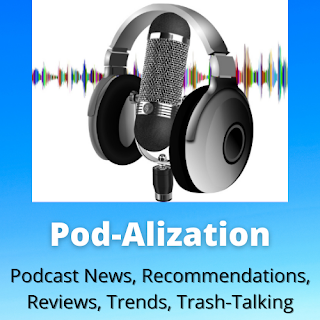Intelligence Squared U.S. Podcast Debates China's Future
We don't have debates in this nation any longer. Today, too many people comfort themselves with conspiracy theories fabricated to fit a specific narrative. Each side retreats to its echo chamber and then panders to people who believe exactly what they believe.
At least, podcasting has an answer to our confirmation bias. It's called the Intelligence Squared U.S. podcast
This week's debate from the Intelligence Squared U.S. podcast argues over the question "Has China's Power Peaked?"
Michael Beckley of Tufts University argues yes. Ian Bremmer of the Eurasia Group argues no.
Here is an excerpt from Beckley's closing statement, arguing that China's power HAS peaked:
"Ian and I have been walking out all kinds of statistics and facts. But I think folks listening at home could actually just trust their gut on a lot of this and honestly ask themselves, does China seem like a country headed in a happy direction? Would you be willing to invest more of your life savings in Chinese stocks and real estate right now? Or if your kids came home today and said they were going to move to China indefinitely, would you be really excited about that prospect? If Xi Jinping was your dictator for life and you had no chance to vote him out, would you feel good about that?
"In international surveys, when these kinds of questions are asked, people are increasingly answering no. I think that just reflects what we can all see, whether it's in newspaper headlines about the problems in China's economy or the photos of overrun hospitals, the ghost cities, these mortgage boycotts, reports about the Chinese government setting up this massive surveillance and repression system to deal with people in a world where it can no longer just buy them off with rapid growth. So these and many other data points add up to a basic fact that the rise of China that we've gotten so used to over the last 40 years is coming to an end."
Here is an excerpt from Bremmer's closing statement, arguing that China's power HAS NOT peaked:
"I get this question "Would you be excited if you found out your kids would be going to China?" a lot. And the answer is no, of course. But we've been asking those questions for decades now. And the answer is no different. This is not a new debate. Nick Kristof in New York Times, "CHINA: The End of the Golden Road" back in '91. Jack Goldstone, '95: "The coming Chinese collapse." The cover story in The Economist in 1998: "The Coming Collapse of China." Bill Helton, "Will China implode?" back in 2009. Dan Blumenthal, "China's Great Stagnation" in 2016.
"Could Mike be right this time? I guess it's possible, right? Look, it's an attractive thing to argue because, politically, we don't like them. We worry about a world where the Chinese would actually take over. So we want China's power to have already peaked. And I'm gonna give Michael some points here, I don't think there's going to be a "Chinese century." We're already a quarter of the way in, and it don't look like that's happening… But what we're debating today is whether China's power has peaked, and I don't think you want to make that bet."
Watch a short video clip on YouTube: https://www.youtube.com/watch?
Freakonomics M.D. podcast asks why patients are getting new miracle cures
The Freakonomics M.D. podcast just aired a two-parter about recent game-changing technological breakthroughs you probably haven't heard about. Using tools like CRISPR, scientific advances that seem like science fiction have become reality.
So why aren't many patients getting these new miracle cures?
Because getting those life-saving new treatments can cost millions of dollars. Last year, a gene therapy cure for the blood clotting disorder hemophilia broke the record for the most expensive drug in the world when it hit the market at $3.5 million per treatment.
Host Dr. Bapu Jena spoke to a variety of doctors, economists, and entrepreneurs about how to get these potentially life-saving treatments to actually start saving more lives.
Listen to Part 1 "What’s Stopping Us From Curing Rare Diseases?" here:
https://freakonomics.com/
Listen to Part 2 "Who Pays for Multimillion-Dollar Miracle Cures?" here:
https://freakonomics.com/
You can find episode transcripts as well at both links.
This episode is particularly timely because in early January 2023, the U.S. Food and Drug Administration approved a new drug for Alzheimer’s disease, which ushers in a sought-after treatment option for the many people in the U.S. who are diagnosed with the memory-robbing condition each year.
For Eisai, the pharmaceutical developer behind the drug, the approval is both a major milestone and a significant test. A successful market launch of the medicine, called Leqembi, could change the Japan-based company’s future prospects. First, it must overcome doubts about how much the drug will actually help patients, concerns over its safety risks, and resistance to its potential impact on healthcare costs.
Eisai’s biggest challenge is the drug’s price, which the company set at $26,500 per year for the average eligible patient.
That's not hard to remember.

Comments
Post a Comment
Thank You for your input and feedback. If you requested a response, we will do so as soon as possible.